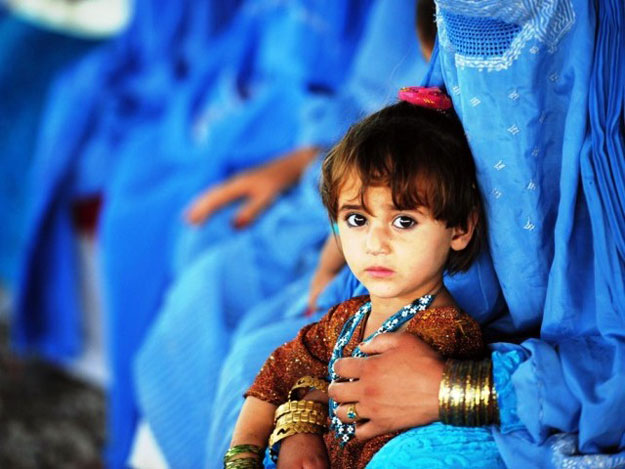
Registered Afghans have Proof of Registration (PoR) cards to stay in Pakistan till December 31 of this year.
Maulvi Shahzada Shahid, a member of Parliament, who is accompanying the Afghan minister for refugees and repatriation, said Kabul has also called for the enlisting of around one million Afghans.
Read: Dignified repatriation: Body to document Afghan refugees
Sayed Hussain Alimi Balkh is leading a nine-member team for the talks, and the Pakistani side is being headed by Minister for States and Frontier Regions Abdul Qadir Baloch.
The Afghan delegation arrived in Islamabad on Sunday amid claims that Pakistan has launched a “crackdown” of the refugees following the Taliban attack on the Army Public School in Peshawar on December 16.
Pakistani and Afghan officials will also sit with the representatives of the UN refugee agency in Islamabad in a tripartite meeting on Tuesday, UNHCR spokesperson Duniya Khan said.
Read: Repatriation plan: Afghan team arrives to discuss refugee issues
The Afghan delegation attended a meeting in Peshawar with the governor, the chief minister and top police officials.
“Both sides agreed the governments of Afghanistan and Pakistan jointly work for the solution to the problems of the refugees,” Maulvi Shahid, who attended the Peshawar meeting, told The Express Tribune.
“We are asking for an extension in the duration of the stay of the registered refugees whose PoR cards will be expired in 2015, and documentation of all unregistered Afghans,” he said at a reception hosted by Afghan Ambassador Janan Mosazai in honour of the Afghan delegation.
Read: A home without food: Afghan refugees return to malnourished country
“The reality is that all refugees cannot return home, and if they stay in a vague status then it will be a matter of concern for the government of Pakistan and the refugees,” he said.
The Afghan leader also dispelled the impression of the involvement of refugees in terrorism.
“We insist that Afghans, who live in other countries -- especially Pakistan, do not indulge in terrorist activities. Pakistani authorities, to a large extent, recognise Afghanistan’s notion,” Maulvi Shahzada said.
“We also demand that the issue of terrorism should not be linked to the refugee issue,” he added.
Read:'Harassed' Afghan refugees fleeing Pakistan in aftermath of Peshawar school attack
He said leaders of both countries are now cooperating on security issues, which has raised hopes that they would find a solution to the problems.
Pakistan had registered some 2.15 million Afghans with the help of UNHCR in 2006-7. The PoR cards, valid until December 2009, were issued.
In December 2012, the Cabinet agreed to extend the stay of Afghan refugees in Pakistan until 30 June, 2013 as an interim measure, whilst the government formulated a national policy on Afghan refugees for the period beyond June 2013.
Read: Implementing NAP: No funds to register Afghan refugees, says SAFRON ministry
In July 2013, Pakistan approved a new policy on Afghan refugees, which included the extension of the PoR cards and the Tripartite Agreement on Voluntary Repatriation until 31 December, 2015.
UNHCR says approximately 33% of the population live in 76 Refugee Villages (RVs) in Khyber-Pakhtunkhwa, Balochistan and Punjab. The remaining 67% live in urban and rural areas.
1732434981-0/BeFunky-collage-(10)1732434981-0-405x300.webp)





1732428810-0/Copy-of-Untitled-(3)1732428810-0-270x192.webp)
1732425487-0/BeFunk_§_]__-(42)1732425487-0.jpg)









COMMENTS (14)
Comments are moderated and generally will be posted if they are on-topic and not abusive.
For more information, please see our Comments FAQ